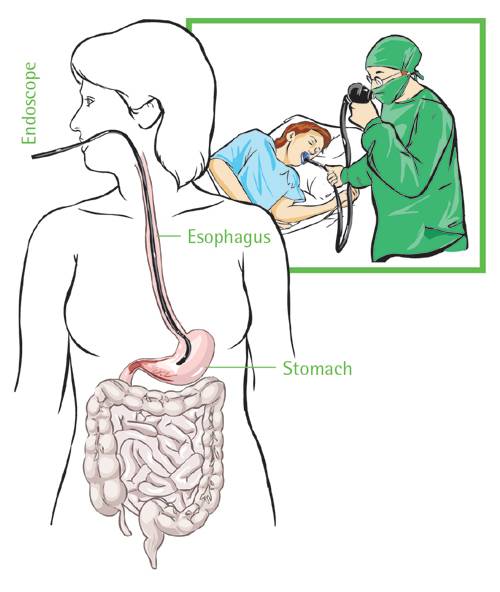What is Stomach Cancer?
 Stomach cancer, or gastric cancer, is cancer that starts in the stomach. Worldwide, stomach cancer is the second leading cause of cancer death in both men and women. It is particularly common in East Asia. In Singapore, it is the sixth most common cancer in men, who have a 1 in 50 lifetime risk of developing stomach cancer. In Singaporean women, it is the eighth most common cancer. Stomach cancer claims approximately 300 lives every year in Singapore.
Stomach cancer, or gastric cancer, is cancer that starts in the stomach. Worldwide, stomach cancer is the second leading cause of cancer death in both men and women. It is particularly common in East Asia. In Singapore, it is the sixth most common cancer in men, who have a 1 in 50 lifetime risk of developing stomach cancer. In Singaporean women, it is the eighth most common cancer. Stomach cancer claims approximately 300 lives every year in Singapore.
What Causes It?
While the exact causes of stomach cancer remain unknown, factors that may increase the risk of stomach cancer include:
• A diet high in salty and smoked foods
• A diet low in fruits and vegetables
• Family history of stomach cancer
• Infection with Helicobacter pylori, a bacterium that lives in the mucous lining of the stomach
• Chronic gastritis, which refers to a long-term inflammation of the stomach
• Pernicious anaemia, which is a decrease in red blood cells that occurs when the intestines cannot properly absorb vitamin B12
• Smoking
Signs and Symptoms
This cancer has few or no symptoms in the early stages, which makes early detection difficult.
A patient may experience a loss of appetite, unexplained weight loss and chronic abdominal pain. However, gastric pain or dyspepsia (any pain or discomfort in the upper abdomen) is a very common symptom and mostly due to common ailments such as acid reflux or gastritis. As such, many people, even doctors, may not immediately suspect stomach cancer.
This is the main reason why the cancer is often discovered late. Less common symptoms of stomach cancer, and which tend to present in the more advanced stages, include vomiting and the passing of black stools, which is a sign of bleeding.
Diagnosis & Assessment
Tests for the diagnosis of stomach cancer include:
Gastroscopy – This is the test most often done for stomach cancer. During this test, the doctor puts an endoscope (a long flexible tube with a camera and light at the end) into the mouth and down into the stomach. This lets the doctor look at the inside of the stomach.
Biopsy – This test is performed during a gastroscopy. In a biopsy, the doctor takes a small sample of tissue from an abnormal-looking area of the stomach, and then another doctor looks at the tissue under a microscope.
Imaging tests of the stomach – Imaging tests such as computed tomography (CT) and ultrasound scans create pictures of the inside of the body to see if the cancer has spread elsewhere.
Doctors will also check for Helicobacter pylori infection. This can be done in different ways, including breath tests, blood tests, and other laboratory tests.
Treatment & Care
What Treatment Is Offered?
Stomach cancer is usually treated with one or more of the following:
|
SURGERY This is the only effective method for curing stomach cancer. During surgery, the doctor might remove part or all of the stomach. Even in certain patients with advanced incurable stomach cancer, surgery is performed to reduce complications of the cancer such as blockage of the stomach or bleeding from the cancer. |
|
RADIATION THERAPY After surgery, radiotherapy may be administered together with chemotherapy to kill very small remnants of the cancer that cannot be seen and removed during surgery. In patients with advanced stomach cancer, radiotherapy may be useful for relieving stomach obstruction. Radiotherapy may also be used to stop bleeding from cancers that cannot be operated on. |
|
CHEMOTHERAPY Chemotherapy is the use of drugs to help kill cancer cells and shrink the size of the tumor. It can be given alone or combined with radiotherapy after surgery. Chemotherapy may also be used to reduce symptoms or prolong life in patients with advanced stomach cancer that cannot be operated upon. |
|
TARGETED THERAPY About 1 in 5 stomach cancers has too much of a growth-promoting protein called HER2 on the surface of the cancer cells. Tumors with increased levels of Giving trastuzumab with chemotherapy can help some patients with advanced, HER2-positive stomach cancer live longer than giving chemotherapy alone. |
How Can We Prevent Gastric Cancer?
Although the exact causes of stomach cancer are unknown, there are steps we can take to reduce the risk of developing stomach cancer.
In fact, in many developed countries, where refrigeration has allowed a greater intake of fresh rather than salt-preserved foods, rates of stomach cancer have fallen over the years.
Here’s what you can do:
• Take more fruits and vegetables
• Reduce intake of salt and smoked foods
• Stop smoking
• Know your medical history and undergo regular gastroscopy if you have a history of Helicobacter pylori infection
What kind of support is available?

CanHOPE, is a non-profit cancer counselling & support service initiated by Parkway Cancer Centre.
As part of the holistic approach towards cancer treatment, CanHOPE works closely with the medical & allied health professionals, offering a wide range of resources & information about cancer in helping patients & their caregivers to make effective, informed decisions in their treatment journey.
Join us in our support programmes that are available on a monthly basis.
CALL our CanHOPE counsellors: +65 67389333 or e-mail:
What is Stomach Cancer? originally appeared on Parkway Cancer Centre and has been republished with permission
Further Reading
The article above is meant to provide general information and does not replace a doctor's consultation.
Please see your doctor for professional advice.
